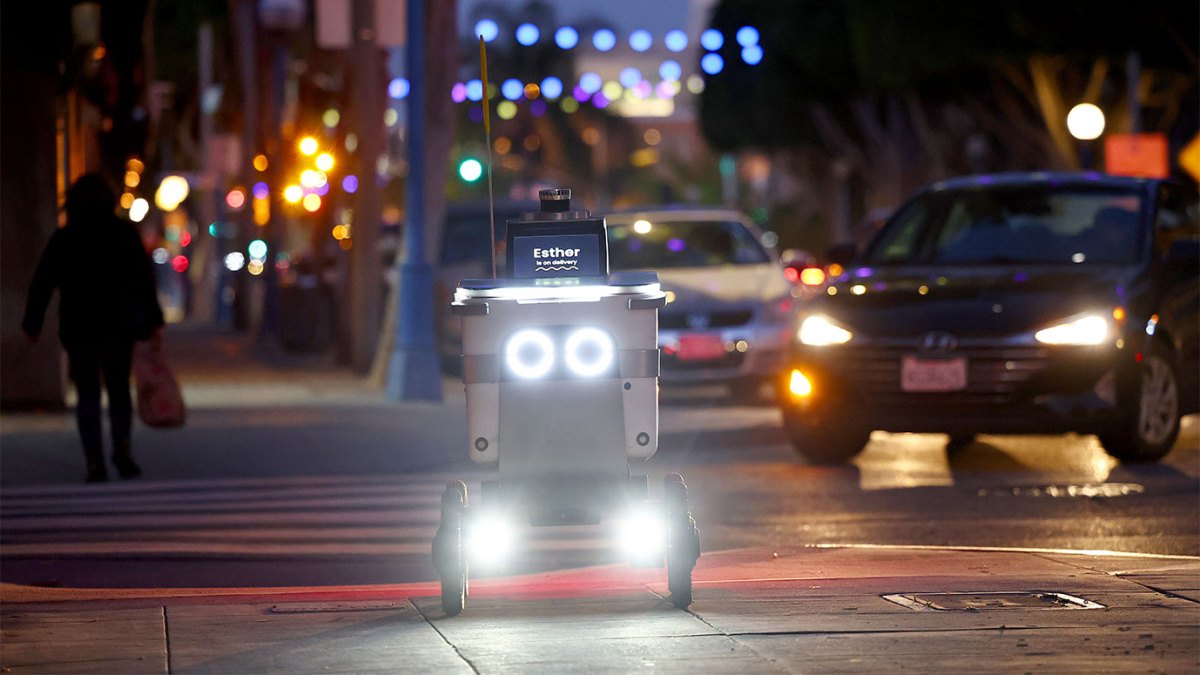On December 27, a Waymo robotaxi and a Serve Robotics sidewalk delivery robot collided at a Los Angeles intersection, according to a video that’s circulating on social media.
The footage shows a Serve bot crossing a street in West Hollywood at night and trying to get onto the sidewalk. It reached the curb, backed up a little to correct itself and started moving toward the ramp. That’s when a Waymo making a right turn hit the little bot.
The person who posted the video said the Serve bot had run a red light before the collision, though that’s not clear from the footage.
One Reddit user commented on the video saying: “Waymo computers: ‘Doesn’t appear to be a human or animal.’ ‘No life form detected’ BAM!”
And while that comment was likely made in jest, the sentiment is not exactly wrong.

When TechCrunch asked Waymo whether the robotaxi saw the bot, a spokesperson said that the Waymo Driver system correctly observed that the delivery robot was an inanimate object. The Driver is designed to be a cautious defensive driver that prioritizes the safest driving path with the information it has at any given moment, and its ability to classify and distinguish different types of road users and objects informs its behavior around them. For example, the Driver is programmed to be more cautious around children and pedestrians.
This isn’t to say that Waymo’s Driver will just bulldoze anything inanimate; in this case, the delivery robot had paused at the curb before driving into the vehicle turning lane just as the Waymo robotaxi entered the intersection. At that point, the Waymo Driver applied hard braking before making contact with the delivery robot at 4 miles per hour, according to the Waymo spokesperson.
Neither AV was damaged, and the two remained locked for a minute before going their separate ways. But as more autonomous vehicles hit public roads, there’s a question to be asked about what happens when they collide? How do the companies decide which robot, and therefore, which company, is liable in the case of damage?
Based on previous information Waymo has given TechCrunch, when a collision occurs, the Waymo Driver notifies the company’s Fleet Response and Rider Support teams. The Fleet Response team reviews the scene remotely and dispatches a road-side assistance representative if needed. The Rider Support team checks the status of the riders and, if appropriate, contacts first responders.
In this specific instance, there was no passenger inside the robotaxi. It’s not clear if the Fleet Response team was alerted to this collision, or whether either the Waymo robotaxi or the Serve bot required humans to assist in getting out of the jam remotely.
A Serve spokesperson told TechCrunch that this is the first instance of one of its bots colliding with a robotaxi, and confirmed that the bot was under remote supervisor control at the time of the incident since that is still part of Serve’s playbook for intersection crossings.
TechCrunch was unable to get more concrete answers from Waymo or Serve regarding specifics around liability in the case of future incidents that might result in more damage. Spokespeople from both companies have confirmed that they have been in touch to work to avoid similar issues in the future.

